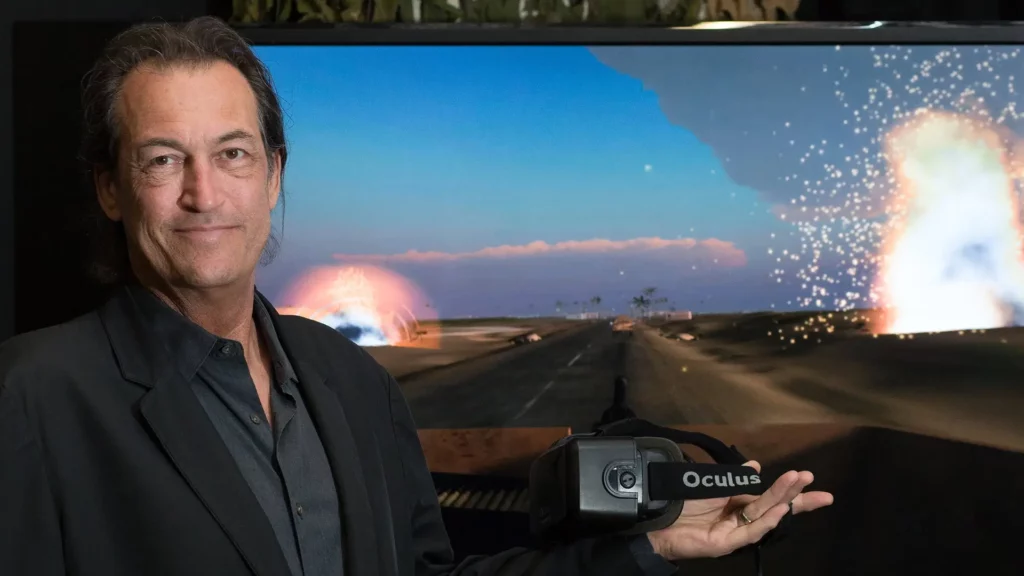Dr Albert “Skip” Rizzo, Director, Medical Virtual Reality Lab at USC’s Institute for Creative Technologies, has been featured in VFX Voice, the magazine of the Visual Effects Society, discussing the evolution of virtual reality in mental health treatment.
The profile examines how VR has progressed from early prototypes to established clinical tools. Rizzo identifies three key drivers: lower-cost headsets with higher performance, stronger clinical evidence, and emerging commercial uptake.
“The whole field of clinical applications using VR/XR/AR has evolved dramatically in several ways,” Rizzo says in the interview. “First, the technology has caught up with the vision, including products developed by Meta, PICO and HTC that have surpassed what we could have dreamed of – low-cost, high-fidelity headsets and tech for developing these experiences. So, we can really deliver at scale for clinical purposes.”

The article focuses on BRAVEMIND, the virtual exposure therapy system for combat-related PTSD developed under Rizzo’s leadership at ICT. The system allows clinicians to gradually immerse patients in simulations of traumatic scenarios within a controlled setting. Bravemind is now being configured for deployment in Ukraine, extending its reach to contexts where trauma treatment is urgently needed.
“All my work has a clinician component [as] the therapy is administered with a clinician, which can be remote; it’s not a self-help model,” Rizzo explains. “This is hard medicine for hard problems, in going back to the scene of trauma to confront and process emotional memories in a safe place – even conceptually. Going through the emotional activation with the support and very active engagement of a clinician is key; as someone talks about their story, the clinician can adjust the VR scene to align with the evolving narrative and enhance the realism and effectiveness of the therapy.”
Whilst encouraged by progress, Rizzo acknowledges that regulation, usability and scalability remain significant challenges. For him, the task now is not to prove whether VR therapy works, but to ensure that it becomes accessible in everyday clinical practice.
The full interview appears in VFX Voice
